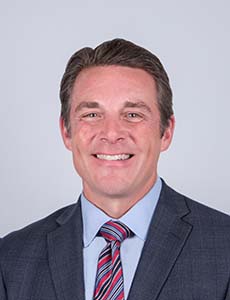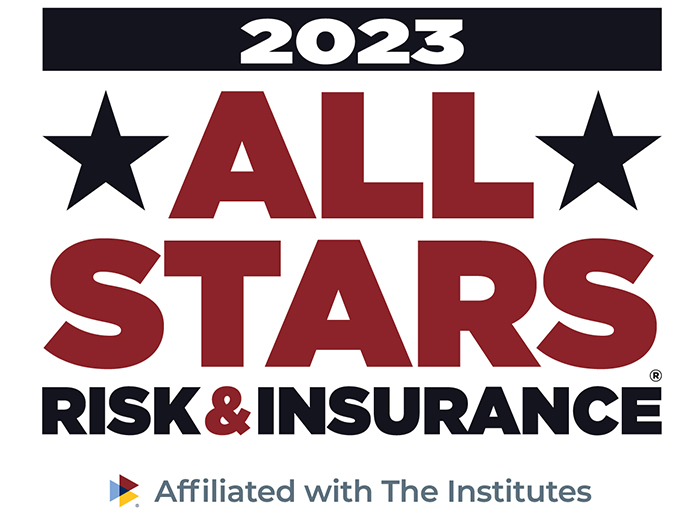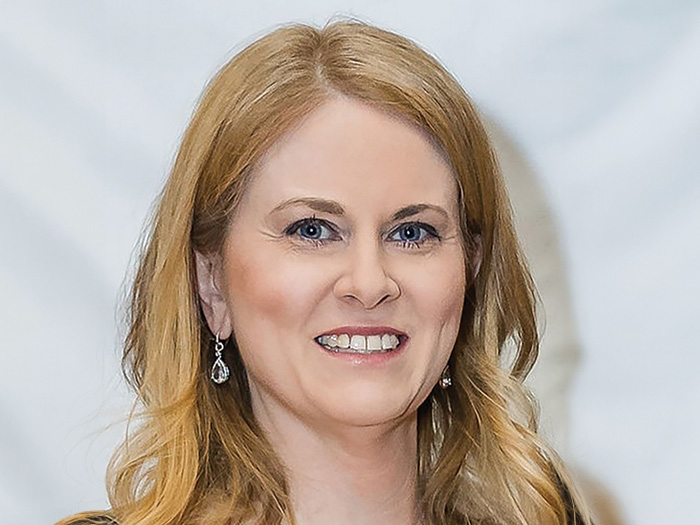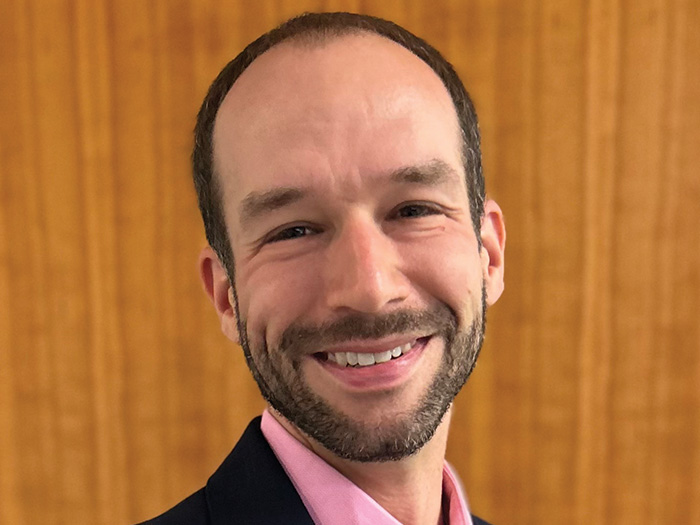From Undergraduate to Underwriter: Four Experts Share Their Strategies for Widening the Risk and Insurance Talent Pipeline

Ask most people working in risk management and insurance (RMI) how they found their way to the industry, and they’ll probably say something to the effect of “I just kind of fell into it.”
Soon, responses to that same question may be very different.
“Maybe 10 years ago, McKinsey did a study looking at how many risk management and insurance programs are out there and how much talent the industry needs,” said Thomas Berry-Stoelzle, associate professor of finance, Nationwide faculty fellow, and faculty director of the Vaughan Institute, University of Iowa. The findings from that study showed that graduates from collegiate RMI programs back then could only fill perhaps 10% of job openings.
Since then, programs like the one Berry-Stoelzle directs have been emerging to build a pipeline from academia to the world of risk.
Carriers, brokerage firms and independent recruiters have also been steadily developing an array of internship, training and recruitment programs in that time to find a way to cultivate the future of risk talent.
Thirty-five out of 50 states now have some sort of insurance-related two- or four-year collegiate program. At most of those institutions, business school students study RMI through elective courses, but more and more schools are restructuring their RMI programs to encourage students to consider the potential of a career in the industry from the moment they step foot on campus.
An Insurance Program Returns
The emergence of RMI programs has largely been driven by the job market in certain regions. University of Iowa’s RMI certificate program at the Vaughan Institute is one example of a state’s economic needs compelling a school to take urgent action to raise the next generation of risk management talent.
“Let me give you a historical perspective, because it’s interesting,” Berry-Stoelzle said.
Beginning in the fall of 2023, students will have the option to major in risk management and insurance for the first time since the 1980s. This is huge for the state’s insurance industry given the sector’s large footprint on Iowa’s economy.
“If you compare the relative importance of the insurance industry in any state relative to the size of the state and the GDP, in Iowa the insurance industry is more important than in any other state in the country,” Berry-Stoelzle said.
Back in the 1960s and ’70s, a major in insurance was offered at the University of Iowa. “And then in the early ’80s, it disappeared from the university catalogue.”
After several decades of general lobbying from insurance industry executives and business school alumni, the RMI certificate program was created at the Vaughan Institute about 15 years ago, Berry-Stoelzle shared. “Now, we’re getting back to creating a major again, and of course, the whole industry here in the state is excited about that because there is no other [university] major in the state right now.”
Two other collegiate institutions in Iowa also offer risk-related degree programs, but neither grants a bachelor’s degree specifically in risk management and insurance. Drake University offers a concentration in insurance under its business administration in actuarial science program, and Northwest Iowa Community College provides an associate of applied science degree in insurance services management.
From Certificate to Degree
The Vaughan Institute will continue to offer the RMI certificate as an option for all U of Iowa undergrads, regardless of their major. But half of students enrolled in the certificate program each year tend to be finance majors anyway, as the Vaughan Institute is housed in the finance department at the Tippie School of Business.
“It’s easy for finance students to try out the RMI intro course without having to commit to anything,” Berry-Stoelzle said. The remainder of the certificate students typically pursue marketing or business analytics, or come from the college of liberal arts’ program in actuarial science.
“Many students just pick a major and never look into what else is out there — certificates, minors. [It’s easy for students] to just ignore them,” he said.
Although a steady stream of students has been graduating each year since 2008 with the Vaughan Institutes’ RMI certificate, “an [RMI] major will give us a lot more visibility among the students. And so we hope to see the program as a whole grow quite a bit moving forward,” Berry-Stoelzle added.
No Major Investment Required
Reading news about major donors like Peter Arkley, president of Alliant Retail Property & Casualty, providing the funding to establish a risk management program at USC’s Marshall School could give the impression that it takes a heavy lift to build an RMI degree program.
Certainly, at the onset, a significant financial investment helps get things up and running, but at the University of Iowa, making the RMI program number seven on the roster of U of Iowa’s Tippie College of Business was more a matter of redistributing resources, re-bundling existing coursework and riding momentum.
“It was the next natural step,” Berry-Stoelzle said. The Vaughan certificate program has had steady traction from students, so “we already had the courses in place,” he said. “[And] of course, now our staff in the undergraduate program office is allocating some time towards this new program.”
Tippie’s online MBA program has also experienced tremendous growth in recent years, so new faculty were already being brought on to keep pace with the school’s organic expansion. These experts will be able to teach courses come fall 2023, when the RMI major officially rolls out.
“As we start the [RMI] major and see how enrollments are going, if enrollments go up, we will have to make some investments to support the growth moving forward. That’s how I’m thinking about the rollout of this program,” Berry-Stoelzle said.
Get Them to an Intro Class and Maybe They’ll Stay the Course
Even for the risk management world’s academic celebrities, it can be tough to inspire college students to consider a career in risk management.
From the outside looking in at the 2022 Spencer-RIMS Risk Management Challenge winner, Appalachian State University, one might expect to hear tales of students on course waiting lists. Instead, RMI program director Professor David Marlett and his team at App State’s Brantley Risk & Insurance Center are hard at work rebuilding the momentum their program lost in 2020.
“The number of students majoring in risk management and insurance definitely dropped significantly during the move to remote learning during the pandemic,” Marlett said. The Brantley Center had 200 RMI students prior to March 2020, and throughout the 2020-2021 academic year, their numbers dropped rapidly by about half.
As remote learning precluded any opportunity to engage with students in person, Marlett’s team was cut off from its primary means of getting students to choose an RMI major.
“Basically, every major that we have, we recruit. We have to tell our story. Not many students come to the university looking to major in RMI,” he said. “And so we invest a tremendous amount of time and energy into reaching out to students their first and second, even third year to tell our story and to try to encourage them to give us a look.
“That primarily means getting them into our first course, the principles of risk management and insurance; that’s our feeder course. Once we get them in there, we have a pretty good shot of them adding the major or minor [and] pursuing a career in the insurance profession,” he said.
Now that students are back to full-time in-person learning, App State’s RMI program is regaining momentum.
“We had an overall really strong 2022. AM Best ranked us as the number two program in the country; the students won the RIMS challenge; we had another group of students win the Selective Agency Competition award,” Marlett said.
“And when we visited the students to recruit in sophomore-level courses, it was just wonderful to be able to tell them about the positive accomplishments. And it’s given us a nice jump-start to rebuild our numbers,” he said. “We have about 150, 160 majors now, and we’ll work our way back up — but [remote learning] was a real hit.”
Beyond the Classroom and Into the Real World
Despite the fact that well-known universities now offer RMI degrees, the risk management and insurance fields are still largely overlooked by undergraduate students.
“I’m an example of that,” said Mike Pesch, CEO U.S. global brokerage and president of global brokerage for the Americas at Gallagher.
Looking back to when he began an internship at Gallagher that blossomed into a three-decades-and-counting brokerage career, Pesch said, “I only became an intern because I heard about it through word of mouth from a friend of mine where I went to school, whose mother was a receptionist in [Gallagher’s] Chicago office at the time.”
Granted, Gallagher recruits far more aggressively on college campuses today than it did back then, but Pesch sees such personal introductions to the industry as still being necessary today, particularly in the brokerage realm.
“If you were to ask a young person on campus What is an insurance broker, I don’t know that they would really have a good answer for you,” he said. “They might mention the commercials they see on TV, but they won’t know what a broker does on a day-in and day-out basis.”
This is where on-the-job externship experiences and training initiatives like Gallagher’s summer internship are essential for showing students of various majors, not just RMI, what the insurance industry has to offer.
“Companies really need to meet talent where they are and offer the flexibility, the culture and all those things that talent is looking for. We know other industries are having the same challenges as insurance, so you need to go after those students who’ve expressed interest in risk careers and bring them thoughtfully into the organization.” — Brandon Bayley, head of talent acquisition, QBE North America
Each summer at Gallagher, 450 to 500 undergraduate students are brought into the fold to get a taste of what the brokerage side of the industry has to offer.
“From a recruiting perspective, we’re a bit agnostic about majors,” Pesch said. “There’s a [growing number] schools that have a supported risk management major or minor in their curriculum, and that’s certainly an opportunity to bring someone in who is familiar with the industry and maybe has a bit of an idea of what insurance is and what it means, but it’s not necessary for us.
“When we look at recruiting young people, we really look for just an open mind — someone that could be interested in a career in insurance brokerage — because the spectrum of opportunity within a company like Gallagher has really broadened.”
When Pesch began his internship 30 years ago, most students were trained exclusively to step into the producer role. While that element of the program still exists, Pesch said, Gallagher’s program reflects a plethora of other opportunities within the business.
“We don’t put these young people behind a desk and say Fill out this spreadsheet or Do this or Do that. We really want them to shadow people within the industry, to really assess in their own mind, Is this something I can do for a living?” Pesch said. “And it really helps, I think, in terms of just giving them the foundation to make a good decision about their career.”
Take the data analytics involved in brokering, for example. “That’s a big part of what we do, getting data information to support client decisions and harvesting that data,” Pesch said. “So [the internship] opens up a door to young people that really never would have considered insurance brokerage because they were an information technology major. But this could be a way for them to really get into a great career in an industry that is continuing to grow.”
The summer internship has proven to be a viable talent pipeline, and Gallagher extends employment offers to 50 to 60% of those who are in their senior year.
Fast Track to a Fulfilling Career
With RMI programs housed mostly in business schools, the competition among recruiting employers is fierce, especially in prime geographic locations.
“So it’s very easy for graduates to find a job,” University of Iowa’s Berry-Stoelzle said. At schools located in or near metropolitan financial service hubs, “their graduates have so many other options that they can be very picky.”
High-paying jobs in finance, consulting and investment banking can be quite appealing, and students may completely overlook what the insurance sector has to offer. Underwriting is one pocket of the industry where carriers in particular are dedicating significant recruitment and training effort.
As market demands outweigh underwriting talent supply, especially when it comes to middle-market business, QBE North America is one example of a carrier launching a fast-track career initiative to showcase how unique and dynamic the underwriting role can be.
“You’re impacting strategy [and] risk … A good underwriter has analytics, sales, finance and risk acumen in their background. And right now, those individuals can choose a lot of career paths. Almost every company wants individuals with those kinds of skills,” said Brandon Bayley, head of talent acquisition at QBE North America.
“So what we’re really trying to do at QBE is invest heavily in attracting the type of talent who has those base skills and show them the benefits of an insurance career and what you could do in underwriting,” Bayley said.
“And that’s why we’ve developed the Next Gen Underwriting Program,” he added, “to tap into fresh college grads, give them a program in a year to accelerate all the learning [and] on-the-job elements that they could do over a couple of years.”
This approach is among the ways recruitment teams are looking to speak to the evolving needs of recent grads. For the past two decades of his career, Bayley has seen the traditional playbook for finding top talent get “completely thrown out the window.”
“Companies really need to meet talent where they are and offer the flexibility, the culture and all those things that talent is looking for,” he said. “We we know other industries are having the same challenges as insurance, so you need to go after those students who’ve expressed interest in risk careers and bring them thoughtfully into the organization.”
This is not to say technical skill is all QBE is after. A big part of Bayley and his team’s search centers around finding candidates that match QBE’s cultural blueprint — what the company calls QBE DNA.
“Those are attributes that we see as fundamental to running a successful insurer — some of these being customer-focused, being a technical expert in what you do, being inclusive, being fast-paced, being courageous and being accountable,” he said.
“These are values that we hold true to anyone we’d want to bring into the organization, and the key is finding those that have some of the necessary skills we’re looking for and the capacity to grow and learn and fill in the gap,” Bayley added.
Bayley and his new AVP of campus recruiting hope the flexibility of QBE’s culture will draw students approaching graduation to the Next Gen program.
“So now we need to think differently about our talent,” Bayley said. “Whether we are attending a campus recruiting event, an insurance fraternity event or an association, we want to show up with jobs that have flexibility, provide development and help students grow … We cannot just show up with a list of active openings. We want to provide a roadmap for a career, not just their next or first job.
“What’s better,” Bayley continued, “is to show up with rotational programs, development trajectories so we can take someone from a collegiate level and turn them into an underwriter or turn them into an insurance professional through these programs.”
Next Gen’s first year, commencing in May 2023, will be an academic extension of sorts, where all new hires will work out of QBE’s Sun Prairie campus in Madison, Wisconsin, “to have some on-site cohort learning so that they learn as a group and develop those relationships,” Bayley said.
“But after a year, they [can] transfer or move into an underwriting role almost anywhere in our national geography,” he said. “So, for example, if you’re a student out east, come to Madison for a year, learn how to underwrite business and middle-market, and then you can either return to where you were, where you went to school, or pick a geography that suits your growing career and personal needs.”
A Competitive Drive
Risk and insurance employers are looking to undergraduate programs to turn out talent that knows its way around a spreadsheet, for sure. But it’s the athleticism of undergraduates that is also prompting the industry to nurture relationships with RMI academic programs.
“Our recruiters and Brantley board members over the years have said how they love to hire student athletes because they’re disciplined, they don’t get discouraged, they’re competitive and [they have] good time management,” Marlett said.
Gallagher’s Pesch echoed the sentiment: “Competitiveness is big, no doubt … Remember, we sell a product that people are by and large already buying. It’s a one-on-one competition, you versus the other person, in essence, in the insurance brokerage space. That competitive nature that comes with the athletes inherently is really, really important.”
So for the past two summers at App State, Marlett and his colleagues have been partnering with the athletic department to do workshops on financial literacy and career services for incoming student athletes.
“We work in the Brantley Risk & Insurance Center, the RMI major, career opportunities, and promote it,” he said. “And the [athletics department] recognizes the value for their student athletes to have good job opportunities and support. So that’s been an area where we’ve had a lot of success reaching out, helping them pretty early.”
Immediate access to scholarships also given student athletes a reason to pay more attention to what the RMI program has to offer. “A lot of [student athletes] are diverse, and so we have donors who have provided money for students from a diverse background, like Markel, especially.”
App State’s Brantley Center also has the highest job placement in the business school, and often at the university as well, Marlett said.
“So we remind them of that. We talk about all the scholarship money we have to give, and we usually bring them food and cookies to try [to stay] on their good side,” he said jokingly.
“As [athletic advisors] meet with students who don’t really know what they want to do … if they can encourage them to take that first principles of risk management insurance course, and now I’ve got them for a semester and bring in guest speakers, we get their interest,” Marlett shared.
“And now we’ve got, potentially, a major,” he said. “Working with the academic advisors, being a team player, that’s been a real valuable relationship.” &













